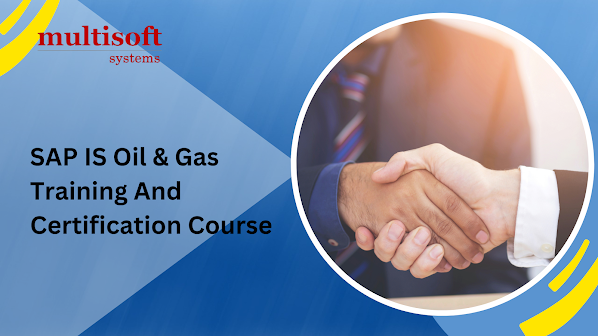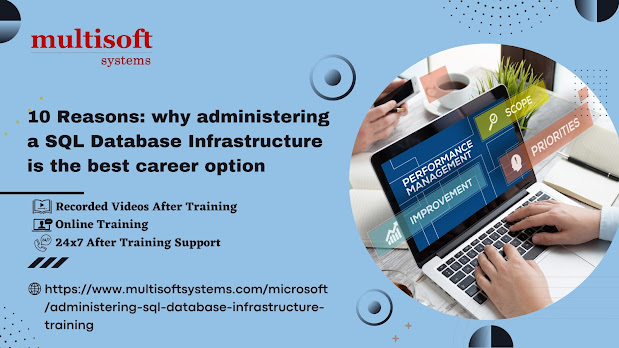A tutorial to SAP IS Oil & Gas Online Training (TIOG10)
Overview
SAP IS Oil & Gas is a comprehensive suite designed specifically for the oil and gas industry. It integrates various aspects of the oil and gas value chain, providing companies with a unified view of their operations. From exploration and production to retail distribution, this industry solution helps manage complex processes and regulatory requirements unique to the oil and gas industry.
The oil and gas industry, with its complex operations and global reach, can immensely benefit from advanced enterprise software solutions. SAP IS Oil & Gas, a sector-specific solution developed by SAP, has been instrumental in streamlining processes and improving efficiency in this industry.
Why SAP IS Oil & Gas Online Training?
As the oil and gas industry continues to adopt digital solutions, the demand for professionals proficient in SAP IS Oil & Gas is on the rise. This is where the SAP IS Oil & Gas Online Training (TIOG10) comes into play. The TIOG10 online training course by Multisoft Systems is a comprehensive program that provides a deep understanding of the functionalities and capabilities of SAP IS Oil & Gas. It equips learners with the skills needed to effectively use this software solution and drive operational excellence in the oil and gas sector.
Some crucial components of the TIOG10 online training course are:
Upstream Operations vs Downstream Operations
In the SAP IS Oil & Gas Online Training (TIOG10) course, the terms Upstream Operations and Downstream Operations refer to different segments of the oil and gas industry, each with its own unique processes and requirements.
Upstream Operations:
Upstream operations, also known as exploration and production (E&P), involve the search for underground or underwater oil and gas fields, the drilling of exploratory wells, and the recovery and production of crude oil or natural gas. In the SAP IS Oil & Gas context, the upstream component covers functionalities like:
- Joint Venture Accounting (JVA): This involves the management of shared revenue and costs associated with joint venture operations in the exploration and production of oil and gas.
- Production and Revenue Accounting (PRA): This covers ownership determination, contracts, production, pricing, valuation, and distribution of revenue.
Downstream Operations:
Downstream operations refer to the refining of petroleum crude oil and the processing and purifying of natural gas. It also includes the marketing and distribution of products derived from crude oil and natural gas. In the context of SAP IS Oil & Gas, the downstream component includes:
- Refinery processes and the management of refined products.
- Transportation and Distribution (TD): This involves the management of the logistics of moving refined products to market.
- Service station management and retail operations: This covers the sales process of the refined products to the end customer.
Joint Venture Accounting (JVA): In the oil and gas industry, many projects are undertaken as joint ventures due to their high risk and capital-intensive nature. The JVA component of SAP IS Oil & Gas is designed to handle the accounting complexities of these joint ventures. It covers areas such as venture setup and master data, joint operating agreements, cost objects, equity group determination, and cutback calculation.
Features include:
- Management of joint venture agreements and associated cost and revenue sharing.
- Equity group determination and management.
- Tracking of costs and revenues at a granular level.
Production and Revenue Accounting (PRA): This module deals with the ownership, contracts, production, pricing, valuation, payments, and revenue distribution associated with the production of oil and gas. It enables companies to effectively track, value, and account for the production and revenue of oil and gas.
Features include:
- Management of ownership contracts.
- Production reporting and forecasting.
- Pricing and valuation of products.
Transportation and Distribution (TD): This component handles the logistical complexities of transporting and distributing oil and gas products. It covers areas such as scheduling, shipping, pipeline inventories, and ticketing, ensuring the efficient and effective movement of oil and gas products from production sites to end users.
Features include:
- Scheduling and management of shipments.
- Tracking of pipeline inventories.
- Ticketing for transportation processes.
Hydrocarbon Product Management (HPM): This module oversees the lifecycle of oil and gas products, including product definition, refining, and distribution. It also handles pricing and contract management, enabling businesses to manage their products effectively and profitably.
Features include:
- Tracking of hydrocarbon products through their lifecycle.
- Pricing at different stages of the product lifecycle.
- Contract management is related to the purchase, sale, and exchange of products.
Remote Logistics Management (RLM): In the oil and gas industry, operations often take place in remote locations, making logistics a major challenge. The RLM component of SAP IS Oil & Gas helps manage these remote logistics, covering areas such as procurement, inventory, and supply chain operations.
Features include:
- Management of procurement, including purchase orders and goods receipts.
- Inventory management in remote locations.
- Integration with supply chain management for efficient transportation and distribution.
Each of these components plays a crucial role in managing different aspects of the oil and gas industry, and a comprehensive understanding of them is essential for anyone working in or aspiring to enter this field. The SAP IS Oil & Gas Online Training (TIOG10) course provides in-depth training in all these components, equipping learners with the skills they need to excel in the oil and gas industry.
What You Gain from the Training?
On completion of the course, learners will:
- Gain a comprehensive understanding of SAP IS Oil & Gas and its application in the oil and gas sector.
- Understand how to implement the software to optimize business processes.
- Become proficient in handling and managing various sub-modules of SAP IS Oil & Gas.
- Be prepared to troubleshoot common issues and provide solutions.
- Be ready to take on roles that require expertise in SAP IS Oil & Gas.
Why Choose Multisoft Systems for SAP IS Oil & Gas Training?
Multisoft Systems brings several unique benefits to its learners, including:
- Experienced instructors with in-depth industry knowledge
- Comprehensive course material covering all aspects of SAP IS Oil & Gas
- Practical exercises and real-world examples to enhance understanding
- Flexible learning options to suit individual schedules and learning styles
Conclusion
SAP IS Oil & Gas Online Training (TIOG10) by Multisoft Systems is an excellent opportunity for professionals looking to specialize in this niche area. By equipping learners with a deep understanding of SAP IS Oil & Gas, the course opens the door to numerous opportunities in the oil and gas sector. So, whether you're an SAP consultant looking to specialize, an oil and gas professional aiming to upgrade your skills, or a newcomer stepping into the field of SAP, TIOG10 can be your springboard to success in the thriving oil and gas industry.




Comments
Post a Comment